By Shincy George, Nursing Manthra.
Introduction
Welcome to Nursing Manthra, your trusted guide for nursing career advancement worldwide! I’m Shincy George, and today, I’m excited to share a detailed step-by-step guide for foreign-educated nurses aspiring to become registered nurses (RNs) in Denmark. With its high quality of life, competitive salaries, and welcoming policies for healthcare professionals, Denmark is an attractive destination for nurses from outside the EU/EEA, especially since July 2024, when language requirements were relaxed to address nursing shortages.
Denmark, a Schengen and European Union country with a population of about 5.9 million, is known for its vibrant cities like Copenhagen, strong healthcare system, and industries like pharmaceuticals, renewable energy, and agriculture. The Danish Residential Nursing Programme, launched in July 2024, facilitates the integration of international nurses, offering family visa benefits and clear pathways to permanent authorization. Whether you hold a B.Sc., Post B.Sc., or GNM (3.5 years), this guide will help you navigate the process with confidence. Let’s get started!
Why Choose Denmark for Your Nursing Career?
- High Demand: Denmark faces a nursing shortage, making it easier for qualified foreign nurses to secure jobs.
- Competitive Salary: Starting salaries range from DKK 30,000–32,000 per month (~₹2–2.15 lakh), with additional pay for overtime and extra hours (37.5-hour workweek).
- Family Benefits: Spouses are eligible for open work permits, and family residence visas are available.
- Welcoming Policies: Unlike popular destinations like the UK, Ireland, Australia, Canada, or the USA, which have stricter regulations, Denmark offers a structured, accessible pathway for international nurses.
- Quality of Life: Denmark boasts a world-class standard of living, low crime rates, and a flat workplace hierarchy that values work-life balance.
Eligibility Criteria
To apply for Danish nursing authorization, you must meet the following requirements:
- Education:
- B.Sc. Nursing, Post B.Sc. Nursing, or General Nursing and Midwifery (GNM, 3.5 years).
- Your education must be equivalent to Danish nursing standards in content, level, and duration.
- Experience:
- Minimum 1 year of work experience within the last 6 years, OR
- A carer certificate with 1 year of experience, OR
- Active nursing council registration.
- Age: 22–45 years.
- Language: No formal Danish language test is required initially. You must demonstrate adequate Danish skills during a 6-month adaptation programme.
- Other: If your education was completed more than 6 years ago, you need at least 12 months of full-time nursing experience within the last 6 years.
Note: If your education lacks clinical hours compared to Danish standards, these can be compensated during the adaptation programme.
Step-by-Step Guide to Becoming a Registered Nurse in Denmark
Step 1: Application and Assessment of Qualifications (6–8 Months)
The first step is to have your nursing qualifications assessed by the Danish Patient Safety Authority (DPSA) to ensure they meet Danish standards. Here’s how to proceed:
- Submit Application:
- Apply online via the DPSA website: en.stps.dk.
- Pay a non-refundable fee of DKK 1,295 (~₹16,000) during the application process.
- Required Documents:
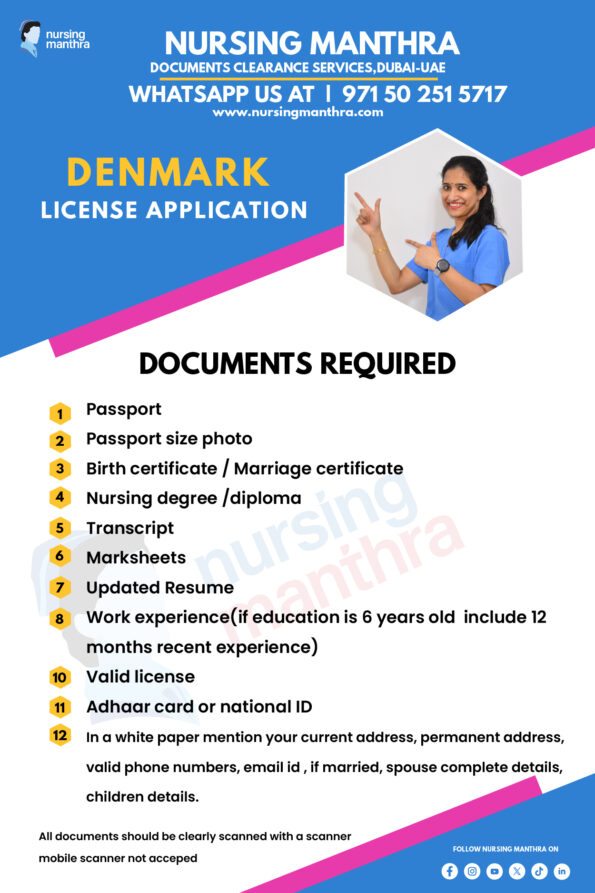
- Submission Process:
- Upload documents when filling out the online application.
- After submission, DPSA will request physical copies of some documents by post (one certified true copy and one regular copy).
- If you applied before July 2024, send all documents by post or email.
- Assessment:
- DPSA evaluates your education against Danish nursing standards, which may take 6–8 months.
- If additional documents are needed, DPSA will notify you via email or post.
- If your education is approved, you’ll receive a letter confirming eligibility for the authorization process. This is not your final authorization.
- If clinical hours are lacking, these will be addressed during the adaptation programme.
- Processing Time:
- Standard: ~7 months from receipt of application and fee.
- Prioritized: A few days if you have a Danish CPR number and reside in Denmark or are a specifically requested healthcare professional.
- Three-Year Deadline:
- Once your qualifications are approved, you must complete the authorization process (including adaptation programme) within 3 years. Exemptions are possible for maternity leave, serious health issues, or if you’ve started/been offered an adaptation position.
Tips:
- Ensure all documents are complete to avoid delays.
- Check your email (including junk folder) for DPSA updates.
- Update DPSA immediately if your address changes.
Step 2: Visa Application (2 Months)
After your qualifications are approved, you need a residence permit to enter Denmark and pursue authorization. The Danish Agency for International Recruitment and Integration (SIRI) handles this process.
- Eligibility:
- You need DPSA approval of your qualifications or confirmation that you’re covered by the authorization process for specifically requested healthcare professionals.
- If you already have a Danish residence permit (e.g., as an accompanying family member), you can use it and skip this step.
- Application Process:
- Apply for an Authorization Residence Permit via nyidanmark.dk.
- Submit:
- Passport copy (all pages).
- DPSA approval letter.
- Proof of financial self-support (e.g., bank statements) for you and any accompanying family members.
- Application fee receipt (~DKK 2,000–4,000, ~₹25,000–50,000).
- Provide biometrics (photo and fingerprints) at a Danish embassy, consulate, or visa center in your country. Check the Ministry of Foreign Affairs’ list for locations.
- If applying through a Norwegian mission, include one passport photo.
- Processing Time: ~1–2 months.
- Post-Approval:
- Once approved, you’ll receive instructions to collect your residence permit.
- You must enter Denmark within 6 months of visa stamping.
- Duration:
- The permit is granted for up to 3 years, extendable if needed, but not beyond 3 years total.
- After authorization, you get a 6-month job-seeking permit to find employment (no work allowed during this period).
Tips:
- Gather all documents before starting the application, as it cannot be saved mid-process.
- If your country lacks a Danish mission, SIRI will guide you to the nearest option.
- Family members can apply for residence permits simultaneously, with spouses eligible for open work permits.
Step 3: Arrival in Denmark and Initial Setup (1–2 Months)
Upon arriving in Denmark, you’ll need to set up essential services and begin language training. You can work as a healthcare assistant (no authorization required) while preparing for the adaptation programme.
- Key Tasks:
- Residence Permit Card: Have your biometric features recorded in Denmark within a specified timeframe to receive your permit card.
- CPR Number: Register for a Danish Civil Registration (CPR) number at your local municipality to access healthcare, banking, and other services. Visit LifeinDenmark.dk for guidance.
- Health Card: Obtain a Danish health insurance card (yellow card) for public healthcare access.
- Bank Account: Open a Danish bank account for salary payments.
- Language Study: Enroll in a Danish language course (often included in employment contracts). Learning Danish is critical for patient communication and passing the adaptation programme.
- Work as Healthcare Assistant:
- While studying Danish, you can work in non-authorized roles (e.g., caregiver in nursing homes) to gain experience and improve language skills. Check workindenmark.dk for vacancies.
- Language Requirement:
- No formal Danish test is required for nursing council registration, but you must demonstrate adequate Danish proficiency (equivalent to Prøve i Dansk 3, B2 level) during the adaptation programme.
- Learning Danish typically takes 1–1.5 years.
- Since July 2024, language requirements have been relaxed, allowing probationary work under supervision while improving language skills.
Tips:
- Start basic Danish communication before arrival to ease the transition.
- Engage with local communities or organizations like the Filipino Nurses Association-Nordic (FiNAN) for support.
- Municipalities often provide language courses and support for your family, including children’s education.
Step 4: Adaptation Programme and Final Authorization (6–12 Months)
The final step is completing an employment for adaptation and training purposes (evalueringsansættelse) to obtain permanent authorization as a registered nurse.
- Finding Employment:
- Secure a job offer for an adaptation position in one of Denmark’s five regions (e.g., hospitals like Aarhus University Hospital or Sygehus Lillebælt).
- Use workindenmark.dk or recruitment agencies specializing in healthcare.
- Your employer must ensure your Danish language and communication skills are sufficient for the role.
- Adaptation Programme:
- Duration: Typically 6 months, extended if clinical hours are needed.
- You’ll work under supervision, performing nursing tasks while being assessed for professional competence and language proficiency.
- If your education lacks clinical hours, these will be compensated during this period.
- Evaluation:
- Your employer submits an assessment to DPSA.
- If positive, DPSA grants permanent authorization to work as a registered nurse in public and private institutions.
- If negative, DPSA will outline additional requirements (e.g., further training or language improvement).
- Timeline:
- You must start the adaptation programme within 12 months of passing language requirements (if applicable).
- The entire authorization process (from qualification approval) must be completed within 3 years.
- Post-Authorization:
- With permanent authorization, you can apply for nursing jobs directly or through your adaptation employer.
- If unemployed, use the 6-month job-seeking permit to find a position.
Tips:
- Build a good relationship with your employer during the adaptation programme, as they may offer you a permanent role.
- Practice Danish daily, as charting and patient communication must be in Danish by law.
- Be proactive in job searches, as adaptation positions depend on regional needs and capacity.
Cost Breakdown
- DPSA Application Fee: DKK 1,295 (~₹16,000)
- Visa Application Fee: DKK 2,000–4,000 (~₹25,000–50,000)
- Document Translation/Certification: ₹10,000–20,000 (varies)
- Language Courses: Often free or subsidized by employers/municipalities
- Travel and Relocation: ₹50,000–1,00,000 (depending on origin)
- Living Expenses: DKK 8,000–12,000/month (~₹1–1.5 lakh) until employment
Note: Denmark’s tax system is high, but benefits like free healthcare, education, and family support offset costs.
FAQs: Clearing Common Doubts
- Do I need to know Danish before applying?
- No formal Danish test is required initially. You must learn Danish and demonstrate proficiency during the adaptation programme. Basic communication skills help with interviews and integration.
- Can I work while learning Danish?
- Yes, you can work as a healthcare assistant in roles not requiring authorization (e.g., caregiver) to gain experience and income.
- What if my education isn’t equivalent?
- If your education lacks clinical hours, these can be compensated during the adaptation programme. If significantly different, DPSA may require additional training or exams.
- Can my family join me?
- Yes, spouses and children can apply for family residence visas. Spouses receive open work permits, and children get educational support.
- How do I find an adaptation job?
- Check workindenmark.dk, hospital websites, or contact recruitment agencies. Networking during language courses or assistant roles can help.
- What happens if I fail the adaptation programme?
- DPSA will provide guidance on additional training or language improvement. You can reapply after addressing the issues.
- Is Denmark safe and welcoming?
- Denmark has a low crime rate, high quality of life, and a flat workplace hierarchy. Communities like FiNAN support foreign nurses.
Need Help?
At Nursing Manthra, we’re here to guide you through every step of your journey to Denmark:
- Application Assistance: Contact us via WhatsApp for help with DPSA and SIRI applications.
- Recruitment Agencies: Ensure you verify the accreditation of recruitment agencies with the Ministry of External Affairs, Government of India. At Nursing Manthra, we provide expert assistance with documentation and job application support, but we do not directly handle recruitment.
Conclusion
Becoming a registered nurse in Denmark is a rewarding opportunity for foreign-educated nurses, thanks to its structured process, high demand, and family-friendly policies. By following these steps—qualification assessment, visa application, initial setup, and adaptation programme—you can achieve your dream of working in Denmark’s world-class healthcare system. Start your journey today, and let Nursing Manthra support you every step of the way!
If you found this guide helpful, please like, share, and subscribe to Nursing Manthra for more career tips. Have questions? Drop them in the comments below, and I’ll be happy to assist.
Shincy George
Nursing Manthra
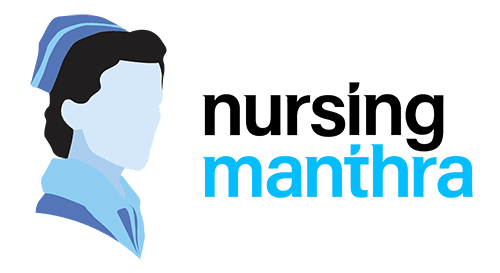




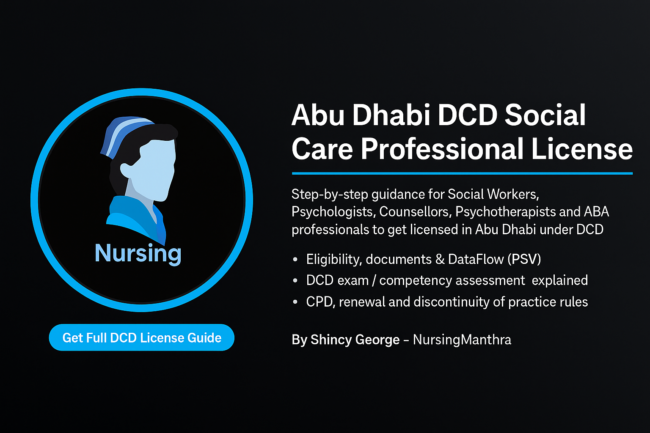





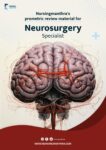
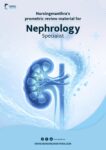
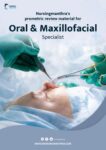
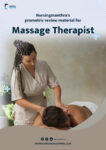
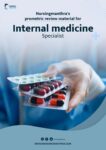
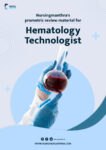
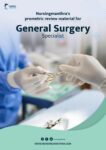

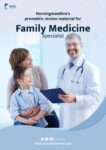
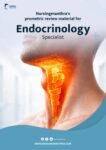
Respected sir,
I am Vinitha.T.E,recently I noticed that ,nowadays Danish government not allowing GNM 3.5 yr members in this adaptation. Is there any changes above you mentioned .Because I am GNM nurse of 3.5 yr.Kindly replay.
25/5/2025
Kerala
Dear
The information is correct, Bachelor degree required
AM TRESSA , WORKING IN SAUDI ARABIA AS A STAFF NURSE , ONE YEAR COMPLETED AND I HAVE ONE YR EXPERIENCE IN MY NATIVE PLACE , CAN I APPLY FOR THIS , AND HOW MUCH ITS COST TOTALLY . .
Hi wish you all fine and healthy iam a physician assistant looking for job in abroad
I have 8 years experience in different Ward
for more clarifications, feel free to contact Nursing Manthra through
WHATS APP: +971502515717
follow this link to what’s App me.
https://wa.me/971502515717
Hi, Nursing Mantra, thanks for the information.
Does Denmark offer accomodation for the first three months after relocation.
for more clarifications, feel free to contact Nursing Manthra through
WHATS APP: +971502515717
follow this link to what’s App me.
https://wa.me/971502515717
For further clarifications feel free to contact us through:
WHATS APP: +971 502 515 717
Or Click the link to reach us directly to our WhatsApp chat
https://bit.ly/2Tl1bMV
Hi, I am Arya,
I have completed general nursing and midwifery (3.5 years). I submitted the application form in October 2024 through an agency with all my documents. But I have not been able to get any update even after a year. Is there any way to know the current status?
For further clarifications feel free to contact us through:
WHATS APP: +971 502 515 717
Contact us through whatsapp given above. We will assist you.
Hi, nursing Manthra thanks for the information.